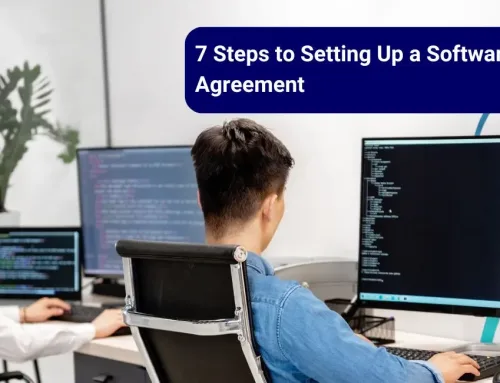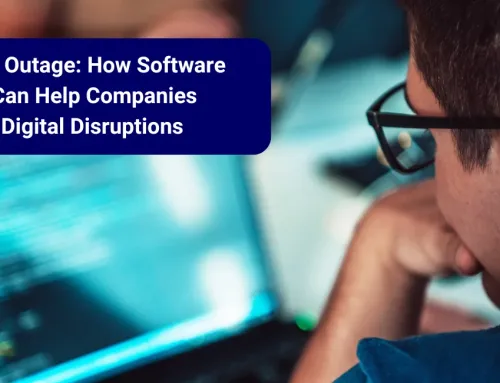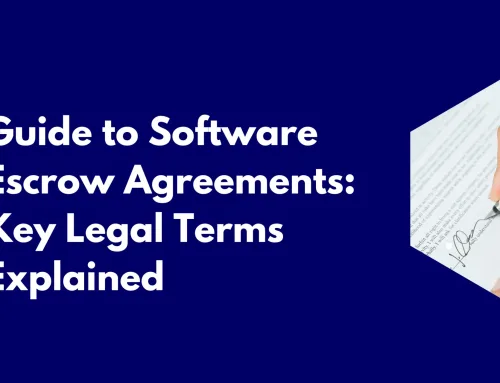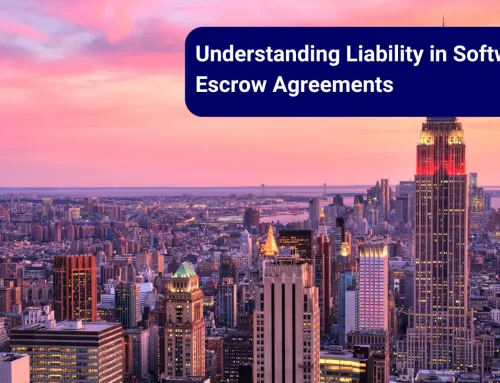When should I use a Software Escrow Vendor?
Software Escrow has been around now for a number of years, however we still come across companies who are hesitant in investing in a software escrow agreement. If this sounds like you then this article will help you decide when you should look at using a software escrow vendor. Covering what software escrow is, what the most common release conditions are and what types of software escrow agreements are available to you.
Software Escrow – What is it?
Software escrow is commonly used by companies to protect their source code or their investment. Escrow services are often sought by developers when their client requests protection of the source code or the data. This requirement is often stipulated in the software license agreement between the developer and the client.
In addition to this, enterprise companies as well as SMBs are starting to look at Software as a Service (SaaS) escrow solutions. According to Bettercloud, global spending on SaaS and cloud services continue to grow with it being estimated that by 2025, 85% of business apps will be SaaS-based. However, 56% of enterprise apps aren’t managed, meaning no one pays close attention to things like renewal dates, licenses, app usage, security, and compliance. (Productiv)
This is where a software escrow vendor can help. By investing in a software/SaaS Escrow agreement, these companies are able to protect their data that resides within SaaS applications hosted by a third party, protecting them against data loss and to provide continuity of the SaaS hosted application in the event of a catastrophic failure by the developer.
What are the most common release conditions?
Software escrow agreements are set up to provide comfort to the end user that if the software developer is unable or unwilling to support the software, the source code and other deposit materials can be released to them and business operations can continue as normal. Release conditions outlined in a software/SaaS escrow agreement usually include the following and may be negotiated between the parties:
- Insolvency – The state of being unable to pay debts
- Bankruptcy – Declared in law as unable to pay debts
- Discontinuing support or service of the software application
- Failure to support the product that is licensed to the Beneficiary and then failing to cure such a material breach within 10 days of notice
- Transfer of IP rights to a third party who does not provide the same level of protection provided for in the escrow agreement
If a release condition occurs, the beneficiary may apply to the software escrow vendor to release the deposit materials including the source code. The depositor has the opportunity to dispute such a release condition and if necessary, the dispute may be moved to arbitration.
Different types of Software Escrow Agreements
A range of software escrow agreements to suit every type of licencing contract are available on the market today. The most common ones include:
- SaaS Escrow – This software escrow agreement is used when the application is a SaaS hosted in AWS, Azure, GCP, or data centre. This agreement protects both the cloud environment and the customer data.
- Single Beneficiary – This software escrow agreement is made up of the depositor, beneficiary and software escrow vendor as the independent third party. A software escrow agreement of this type is usually used when a client is licencing software from a developer.
- Multi Beneficiary – Multi Beneficiary agreements are used by a developer to provide comfort to their clients that they have a standing software escrow agreement in place. By having this type of agreement in place, under a single agreement, the developer is able to add an unlimited number of beneficiaries to the master agreement.
- Data Holding Agreements – Data holding agreements are used when a company is using a developer to create a bespoke application and the beneficiary owns the intellectual property. This type of agreement provides protection for the customer that in the event of a dispute with the developer mid project, another developer will then have the code to continue the project and prevent serious delays.
Conclusion
In summary, there is never a quick yes/no answer for when you should use a software escrow vendor, you will always have to do some research first. To help, there are a few things you can do to make sure using a software escrow vendor is best for you and your business. If you ever have doubts about the software vendor not being financially stable, worry they may discontinue the service and support of the software or breach the maintenance or support obligations, then using a software escrow vendor would be needed.
To ensure you choose the right software escrow vendor, this article here “How do I choose the right Technology Escrow vendor” will also help!
##
About Escrow London
Escrow London is a global technology escrow vendor headquartered in the United Kingdom. Our global coverage is provided across our London office, Escrow London North America Inc in Atlanta, and our Australian office in Sydney.
We have invested considerable resources into innovation to reinvent software escrow for a SaaS world. Escrow London provides a range of SaaS Continuity escrow solutions suitable for AWS, Microsoft Azure and Google Cloud hosted SaaS applications. We support a wide range of clients includes major law firms, banks, central banks, insurance companies, technology companies and government organisations.








